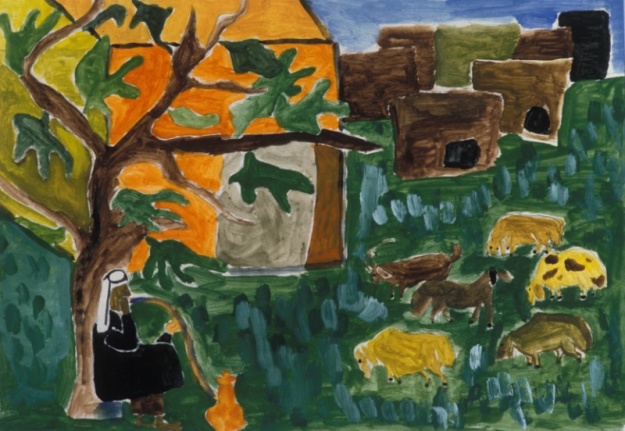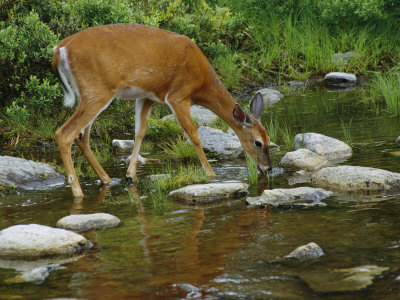
When Myers-Briggs devotees ask me ‘what I am’ on the scale, I say I don’t know. Eyebrows go up. Haven’t you ‘taken the test’? Yes, four times, because two employers, one working group, and an ordination committee required me to. But I’ve always had a hard time recalling what ‘I am.’ In part that’s because every time I take it, the results change. Apparently I’m a moving target.
When the Enneagram people ask me ‘what my number is,’ I also shrug. I’ve never done it. When I admit this, they look a little sorry for me—Richard Rohr teaches it, for goodness’ sake!—and proceed to tell me what they think my number is. I guess they’ve had my number all along, which I find amusing when I don’t find it annoying.
What I have taken are those Facebook tests that tell you what country you should live in and what character you are in Hamlet. I get Fortinbras a lot. Who knew? They’re silly, of course, harmless, and pretty much always wrong, but I take them anyway, for fun. But more ponderous inventories and assessments like the Myers-Briggs and the Enneagram? Those, I confess, I resist.
It’s not that I’m incurious about who I am, or afraid to find out: I once had my palm read in a cave in southern Spain. And it’s not that I’m disapproving of the way such tools become all-explaining constructs for some people, in the same way that the labyrinth colonizes some folks’ entire approach to spirituality. It’s true that I pedantically fret about reductionist distortions of the spiritual life and can be querulous in conversations about it too (see, I know at least that much about myself); but I also know it’s not up to me to decide what people should find ‘powerful’ for their lives, and I can let my wariness go.
Nor am I put off because there’s no scientific basis for the assumptions these tools rest on and the explanatory conclusions they deliver, although quasi-scientific claims are routinely made for them. The Enneagram also purports to be an ‘ancient’ tool, which for mystery-starved Protestant progressives lends it a great deal more authority than science ever could. I find this deference to the ancient supremely ironic in people who aggressively eschew dead white men and most expressions of tradition, but hey. In any case, I’ve given my heart to lots of scientifically unreliable things, like Christian faith and the Red Sox, so the Enneagram gets a pass from me on this count, too.
And it’s not that I don’t understand that, as some fans of the Myers-Briggs and the Enneagram insist when I launch another tiresome critique, they’re only tools meant to help us in circumscribed ways, not the be-all and end-all, etc. You should do it, get inside it, learn from experience, let us explain it to you correctly, then you’d see. The truth would dawn. That’s sort of a gnostic argument when it comes down to it, and I don’t care much for gnostic arguments. Besides it’s just not true. I do get it that they’re only tools. But I also get that many facilitators and experts who fuel the monster self-knowledge industry are not so modest. Their ardor makes ‘only tools’ seem like existential necessities with unassailable validity, and skeptics like me would recognize that if only we would trust them when they say so.
No, what makes me a resister is more philosophical, I guess you could say, or maybe more theological. When push comes to shove, I’m just not very interested in the particular kind of self-understanding these tools offer. I don’t think self-knowledge has all that much to do with being able to unearth and describe particular personality traits or styles of being in the world. What I want is to know myself, not dissect and explain myself. For me, self-knowledge is a comprehensive thing, the sort of knowledge about my human nature that gives my soul stability, a capacity to be neither excessively enamored of its gifts nor abjectly shamed by its lacks, neither preening about its virtues nor shocked by its sins.
When I seek this kind of self-knowledge, I find I’m hardly ever preoccupied with the activity of knowing myself in particular detail. I don’t spend a lot of time negotiating the slalom course of interior self-investigation and segmentation because (as somebody once wrote, I can’t recall who) “knowing yourself is not the same as being interested in yourself.” I’m hoping instead to acquire, over a lifetime, a tacit consciousness of my human finitude and contingency, a deep background awareness of incompleteness and belovedness, a gounding knowledge to accompany me and shape my being and acting in the world.
In this sense, self-knowledge is a discipline and a gift. And what this sort of self-knowledge knows is not ‘things about me,’ but something richer and more encompassing: namely, that my human status vis-à-vis God, my neighbor, and the world is a sheer mercy.
Then there’s this truth: Even the most useful instruments for discovering the self, the shape of our personalities, and the contours of our human style obscure as often as they illumine, because human beings are necessarily elusive and hidden. We are always more than we know. More than anyone knows. And in the same way that ‘God’ cannot be nailed down, neither can we. It’s not for nothing that we were made in the divine image, so dark in its glory, so bright in its enigma. We can’t explain ourselves to ourselves, and no one else and no instrument, scientific or magical, can do it for us, either.
Trouble often comes when someone thinks they have us figured out, or when we think we know what makes another person or class of persons tick. Sometimes the trouble is trifling; sometimes it’s as big, nasty, and dehumanizing as patriarchy, racism, and, well, you name it. There’s nothing silly or wrong (despite my skepticism and occasional mockery) in knowing all kinds of things about ourselves. And I don’t doubt that there are tools that can help in that enterprise. What I doubt is that there’s genuine wisdom to be had in it. I think there’s genuine wisdom in knowing what self-knowledge knows: the whole self cannot be known.
This truth often causes us pain. We all long to go in, to cross the threshold, to know and be known fully. It’s hard to be turned away at the door by the mystery of unknowability. And yet there’s also invincible freedom and dignity in living inside the truth that we can be captured by nothing and no one—not even ourselves.
None of these tools can deliver in any lasting way what they seem to promise (or what some people infer, correctly or not, that they promise): namely, that with numbers and letters in hand, we can understand each other more fully, get along better, make compassionate, or at least practical, accommodations for our differences, and not judge someone because they are a 2 or an INTJ. In my experience, discovering, sharing, discussing, even laughing about our ‘scores’ has rarely forestalled or resolved tension and discord in staff meetings, impatience and dismissive judgment among family members, or the facile excusing of ourselves from the obligation to grow up and behave better.
This failure isn’t the fault of the tool so much as it is a flaw in us. Same old story: we want what we can’t have. For at the core of our lives is a mystery whose entire scrutiny belongs only to God. Self-knowledge is given to us as we’re led to glimpse and embrace the nature of our creaturehood as God fashioned it and knows it, that simple human being most of us spend a lifetime evading even as we’re busily taking personality inventories to tell us who we are.
To seek self-knowledge is to enter a lifelong path of attention, faith, and surrender. It’s also to accept that no effort of ours will ever lead, or is meant to lead, to the kind of detailed understanding we crave when we sit down to take those tests. It will not hand us the keys we think will unlock us and explain us and make things better. That sort of knowing is fine as far as it goes, but to pursue and prize it is to settle for a lot less than we deserve. It may even be a kind of idolatry, depending for grace on gods that can’t bestow it. But to thirst for that larger self-knowledge is to concede divine sovereignty over our enigmatic lives. It is to worship the living God.


